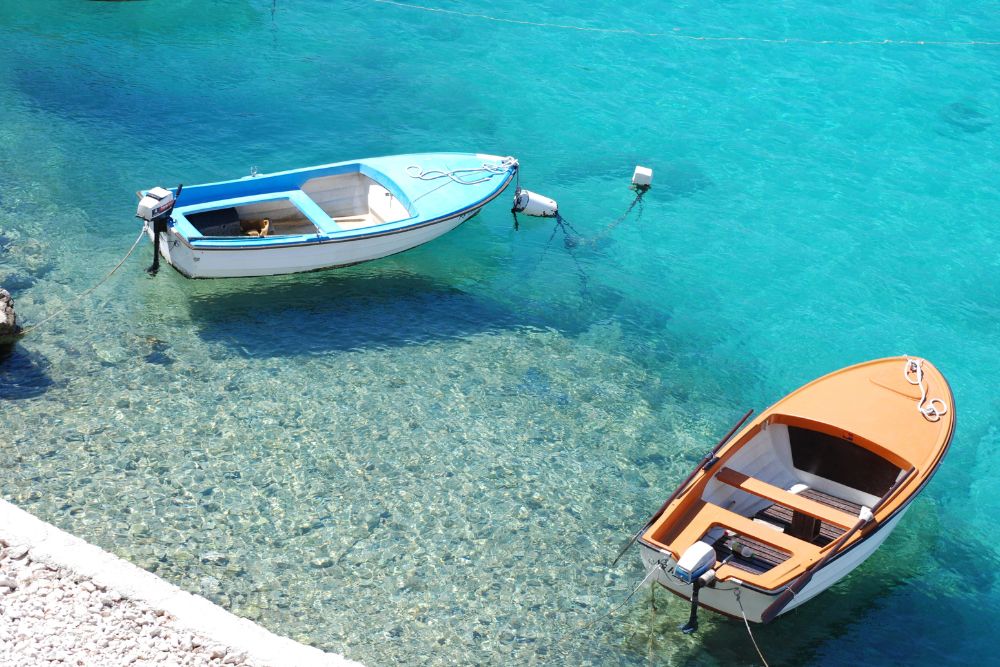People love traveling on the open water. It is peaceful, calming, and a great way to get away from it all. There are many ways to travel on the water, but one of the most popular is by boat. Before you can take your boat out on the open water, you need to make sure that it is properly registered and titled in your name.
However, what do you do if you buy a boat that doesn’t have a title? Unfortunately, the answer is not as simple as it sounds. In order to get a title for your boat, you will need to go through a few different channels in order to get one. However, don’t despair, as there are ways that you can get a title for your boat without too much trouble. Keep reading to find out more!
How To Obtain A Title For A Boat Without A Title
It is not uncommon to find a great deal on a used boat, but the seller may not have the title. In this case, you can still get a title for the vessel as long as you have a bill of sale and a detailed invoice. The process will vary depending on your state, but generally, you will need to fill out some paperwork and pay a fee. Let’s take a closer look at how to obtain a title for a boat without a title.
Step 1: Bill Of Sale
The first step is to obtain a bill of sale from the previous owner. This should include the date of purchase, the make, and model of the boat, as well as the Hull Identification Number (HIN). If possible, get this notarized by a Notary Public.
Step 2: Detailed Invoice
In addition to the bill of sale, you will also need a detailed invoice that includes the following information:
- The date of purchase
- The name and address of the person who sold you the boat
- A description of the boat, including the Hull Identification Number (HIN) or Manufacturer’s serial number
- The amount paid for the boat
Step 3: Titling State Documentation
In order to register your boat, you will need to contact your local title agency and request the proper forms. In most cases, you will need to fill out an application for title/registration as well as a hull identification number verification form. You may also need to provide proof of insurance, a completed bill of sale, and payment for all applicable taxes and fees.
Each state has different requirements for titling boats, so you will need to check with your local DMV or DNR to find out what documentation they require. In most cases, you will need to fill out an application and provide proof of ownership (e.g. bill of sale, detailed invoice). You may also be required to submit a certificate of origin if you are buying the boat from out of state.
Step 4: The Fees
After you have gathered all of the required paperwork, you will need to pay any applicable taxes and fees associated with registering your boat. These fees will vary depending on your state but could include sales tax, use tax, registration fee, and/or titling fee.
In some states, there may also be an emissions inspection required if your vessel has an engine larger than 50 horsepower. Once all taxes and fees have been paid, you will be issued a registration certificate which must be kept onboard at all times when operating the vessel.
Titling Vs. Registration Of A Boat
When you purchase a boat, you may be wondering whether you should register it or get a title for it. While registration is important, titling your boat is even more so. A title is a secure form of proof of ownership, and lenders will require one if you plan on taking out a loan to buy a boat.
Why You Should Title Your Boat
There are several reasons why you should title your boat. First and foremost, as we mentioned earlier, a title is secure proof of ownership. If you ever need to show that you own the boat, the title will be incontrovertible evidence.
Additionally, if you’re planning on taking out a loan to purchase the boat, most lenders will require that you have a title. They want to be sure that they can repossess the boat if you default on the loan.
How To Get A Boat Title
The best way to get a boat title is to request one from the seller when you purchase the boat. The seller should sign the title in front of a notary public, and then give it to you. You’ll also need to fill out an application for a certificate of title and submit it to your local Department of Motor Vehicles (DMV) office. Once you’ve done that, you’ll receive your new certificate of title in the mail.
How To Retrieve A Lost Boat Title From The Seller
A boat title is required in order to register your vessel with the state. The title proves that you are the legal owner of the boat. If the previous owner lost the boat title, you will need to get a copy from the seller before you can register the boat. Luckily, there is a process in place to retrieve a lost boat title from the seller.
The first step is to request a duplicate title from the seller. The seller will need to fill out a Duplicate Title Request form and submit it to the state Department of Motor Vehicles. The form will ask for information about the boat, such as the make, model, hull identification number, and year of manufacture. The seller will also need to provide their name, address, and driver’s license number. Once the form is completed and submitted, the DMV will issue a duplicate title to the seller.
The second step is for the seller to sign over the duplicate title to you. The title must be signed by the registered owner and notarized. Once you have the signed and notarized title, you can take it to your local DMV office and register the boat in your name.
What If the Boat Has a Lien
Unfortunately, if the boat you want has a lien on it, that means the previous owner failed to pay off their loan, and the lender is now legally entitled to possession of the vessel. This can be a complicated and costly situation to resolve, so it’s important to do your due diligence before making a decision. Here are a few things to keep in mind if you’re considering buying a boat with a lien on it.
Check With Your State’s DMV
Every state has different laws governing boat liens, so it’s important to check with your state’s Department of Motor Vehicles (DMV) before proceeding. In some states, liens take priority over any other claims against the boat, which means you could end up owing money to the lender even if you paid the seller in full.
In other states, however, liens are subordinate to claims by subsequent purchasers, which means you would only be responsible for paying off the balance of the loan if the seller defaulted on their payments.
Get All the Paperwork in Order
If you do decide to buy a boat with a lien on it, make sure you get everything in writing from both the seller and the lender. This includes a copy of the loan agreement as well as documentation from the DMV showing that the lien has been paid in full. Without this paperwork, you could find yourself facing legal action from the lender down the road.
Be Prepared for Additional Costs
In addition to paying off the outstanding loan balance, there are also likely to be additional costs associated with buying a boat with a lien on it. These can include title transfer fees, registration fees, and even storage fees if the vessel has been impounded by the lender. Be sure to factor these extra costs into your budget before making an offer on the boat.
The Importance Of A Bill Of Sale
Whether you’re a first-time boat buyer or a seasoned pro, it’s important to understand the role that a bill of sale plays in the purchase process. A bill of sale is a document that serves as proof of ownership and is often used in lieu of a formal title when buying or selling a boat.
In most cases, a bill of sale is relatively simple and straightforward. However, there are certain elements that should be included to ensure that it is legally binding. Let’s take a closer look at the importance of a bill of sale when buying or selling a boat.
Why You Need A Bill Of Sale
In short, a bill of sale protects both the buyer and the seller in the event that something goes wrong with the transaction. For example, if the boat turns out to have previously undisclosed damage or issue, the bill of sale can be used as evidence in court to prove that the seller was aware of the problem and did not disclose it. Similarly, if the buyer fails to make payments as agreed upon, the bill of sale can be used to prove that they are legally obligated to do so. including key information such as:
- The names and addresses of both the buyer and seller
- A description of the vessel, including make, model, year, hull ID number, and any other relevant details
- The sales price
- The date of sale
- The signatures of both parties
- In some cases, additional information may also be included such as financing terms or trade-in arrangements. Including this information can help prevent misunderstandings or disagreements down the road.
A bill of sale may seem like a small thing, but it plays an important role in protecting both buyers and sellers when transferring ownership of a boat. Be sure to include all relevant information and get signatures from both parties to make it legally binding. With a bill of sale in hand, you can rest assured knowing that you’re covered in case anything goes wrong.
In Conclusion
Titling your boat is important for several reasons. First, it’s proof of ownership, and second, most lenders will require a title if you’re taking out a loan to finance the purchase of your boat. To get a title, request one from the seller at the time of purchase and submit an application to your local DMV office. Once you’ve done that, you’ll receive your new certificate of title in the mail. Titling your boat is important for ownership purposes and when taking out loans from lenders.
If you find yourself in a situation where you need to get a title for a boat without a title, don’t worry! There are still ways that you can get one. The first thing that you need to do is determine whether or not your boat is documented or undocumented.
Once you have done that, you can begin the process of getting a title by going through your state’s department of motor vehicles or by working with a private company specializing in boat titles.



